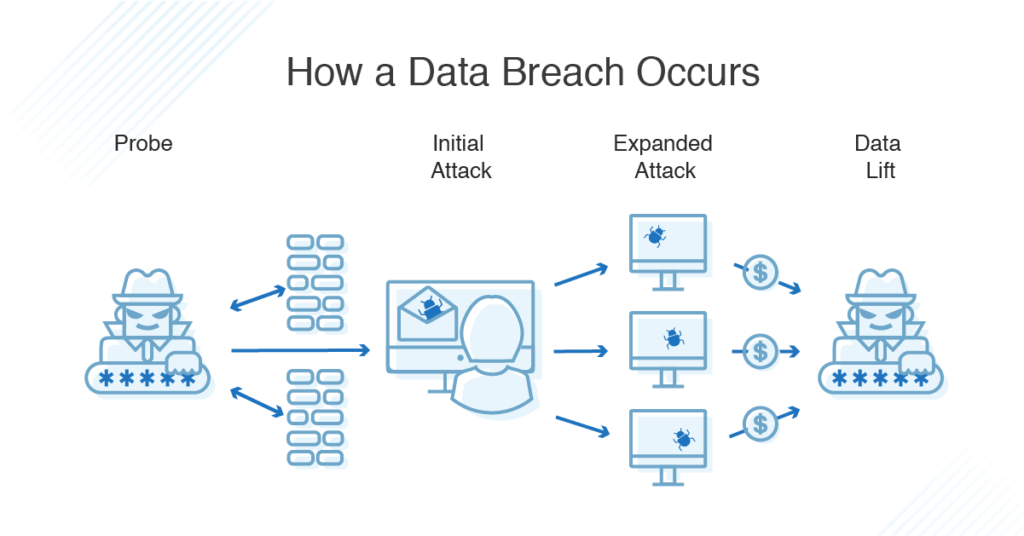

They affect businesses of every size, industry and geography - and they occur with frightening regularity.Īccording to a 2019 Ponemon Institute Report, the odds of experiencing a data breach are one in four over a two-year period. Data breaches are one of the most common and most costly types of cybersecurity incidents. When hackers steal information, it’s called a data breach.Ī little more specifically, it’s called a breach when a whale breaches the surface of the water by thrusting itself up out of it.īreach should not be confused with the homophone breech, which generally refers to the lower part of something.A data breach is a security incident in which malicious insiders or external attackers gain unauthorized access to confidential data or sensitive information such as medical records, financial information or personally identifiable information (PII). When someone bypasses security, it’s called a security breach. In a legal sense, you can breach a contract by not following it (resulting in a breach of contract). In its figurative sense, it’s perhaps more commonly used as a noun, as in phrases like breach of trust and breach of friendship (in which cases it often refers to a betrayal) and breach of etiquette (meaning a violation of proper behavior). It’s often applied to abstract things, as in breach the peace.

To breach something in this way is to violate it. The figurative sense of breach follows the same pattern. This is often applied to things that aren’t supposed to break, such as the hull of a ship or a thick wall, as in They’ve breached the castle gate! The resulting hole is called a breach. In a physical sense, to breach something is to break through it. It comes from the same roots as the word break, and all of its senses relate to breaking or breaking through something. Transgression, with its root sense of “a stepping across (of a boundary of some sort),” applies to any behavior that exceeds the limits imposed by a law, especially a moral law, a commandment, or an order it often implies sinful behavior: a serious transgression of social customs, of God's commandments.īreach has been in use since before 1000. Violation, a stronger term than either of the preceding two, often suggests intentional, even forceful or aggressive, refusal to obey the law or to respect the rights of others: repeated violations of parking regulations a human rights violation.

Infraction most often refers to clearly formulated rules or laws: an infraction of the criminal code, of university regulations, of a labor contract. Breach is used infrequently in reference to laws or rules, more often in connection with desirable conditions or states of affairs: a breach of the peace, of good manners, of courtesy. Breach, infraction, violation, transgression all denote in some way the breaking of a rule or law or the upsetting of a normal and desired state.


 0 kommentar(er)
0 kommentar(er)
